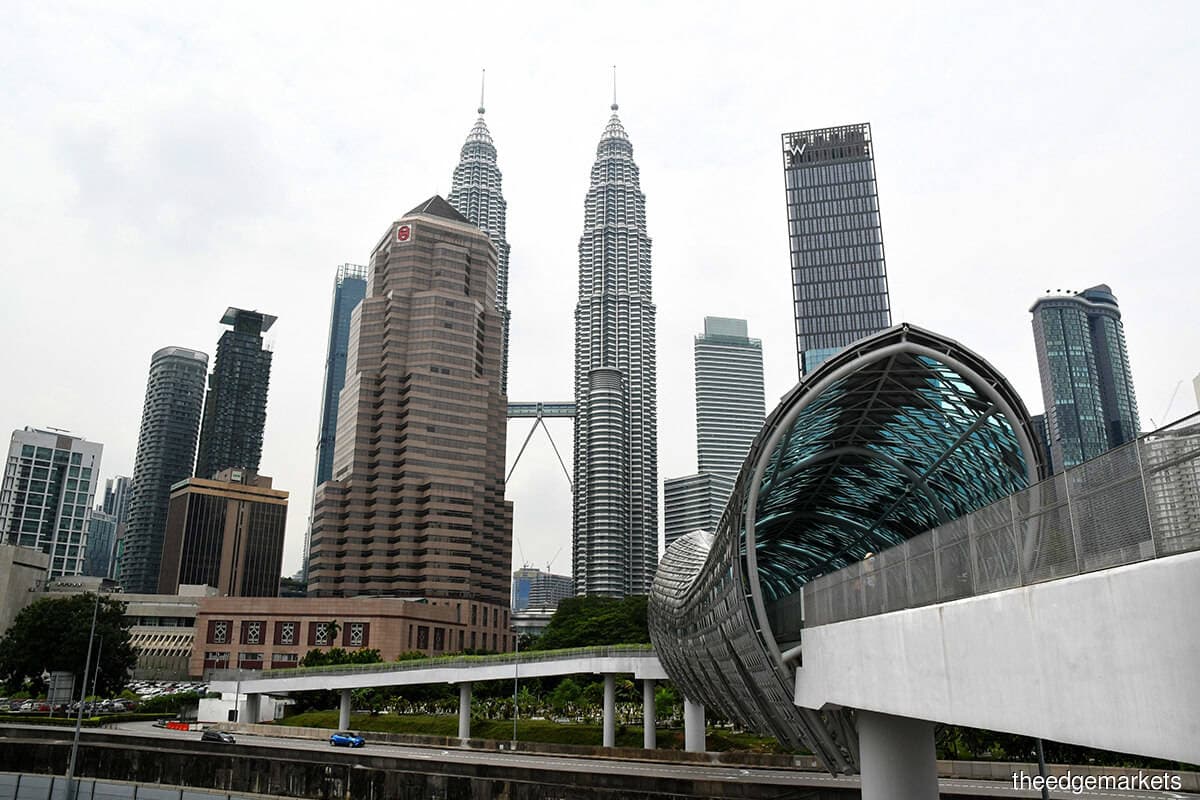
KUALA LUMPUR (Aug 12): Malaysia’s economy, as measured by gross domestic product (GDP), grew 8.9% year-on-year (y-o-y) in the second quarter of 2022 (2Q22) as domestic demand strengthened amid normalising economic activity as the country moved towards Covid-19 endemicity and reopened its international borders, Bank Negara Malaysia (BNM) said on Friday (Aug 12).
In a statement, BNM said Malaysian exports remain supported by strong demand for electrical and electronic products.
On a quarterly basis, the country's economy grew 3.5% in 2Q22 from the preceding 1Q22, said the central bank.
"By sector, the services and manufacturing sectors continued to drive growth.
"While the GDP was lifted to some extent by the low base from the Full Movement Control Order (FMCO) in June 2021, growth in April and May 2022 was particularly robust," BNM said.
Malaysia's 8.9% y-o-y GDP growth in 2Q22 had beaten market forecast.
Economists polled by Bloomberg had expected Malaysia to report a 5.6% y-o-y GDP growth in 2Q22 while those surveyed by Reuters had anticipated the country to register a 6.7% y-o-y GDP expansion in 2Q22.
For the first half of 2022 (1H22), Malaysia's GDP grew 6.9% y-o-y, according to BNM.
The stellar growth numbers came as certain sectors making up 20% of the economy continued to perform below pre-pandemic levels.
BNM data showed that in 1H2022, four sectors posted contraction against 1H2019 levels namely construction (-7%), mining (-5.1%), agriculture (-2.9%), as well as food and beverages and accommodation (-2.8%).
BNM Governor Tan Sri Nor Shamsiah Mohd Yunus said in the statement that while external demand could face headwinds from slower global economic growth, the Malaysian economy will continue to be supported by firm domestic demand.
"[Malaysia's economic] growth would also benefit from improving labour market conditions and higher tourist arrivals, as well as continued implementation of multi-year investment projects,” Nor Shamsiah said.
The statement added that Malaysia’s economic growth remains susceptible to weaker-than-expected global economic growth, further escalation of geopolitical conflicts and worsening supply chain disruptions.
Nor Shamsiah also fielded questions at a press conference on Friday in conjunction with BNM's announcement on Malaysia's 2Q22 GDP performance.
Despite the country's accelerating inflation, Nor Shamsiah said any adjustments to the central bank’s monetary policy will be done in a “measured and gradual” manner to support sustainable economic growth in an environment of price stability.
“It is very clear that we are no longer in a crisis,” she said, adding that “the unprecedented conditions that warranted the large monetary support have since abated”.
She said BNM also noticed early signs of demand-driven inflation, hence Malaysia's overnight policy rate (OPR) adjustments will also pre-emptively manage the risk of excessive demand on price pressures.
“The gradual adjustments in the OPR are necessary to avoid the need for stronger measures in the future, which would be more disruptive to the economy. Ultimately, the goal of monetary policy in Malaysia is to achieve price stability and sustainable economic growth over a longer term,” she said.
Nor Shamsiah said BNM is maintaining its 2022 forecast for Malaysia's headline inflation at an average of between 2.2% and 3.2% while core inflation is expected to average between 2% and 3%.
She also said BNM maintained its 2022 Malaysia GDP growth projection at 5.3% to 6.3% and that the central bank expects the actual figure to be in the upper end of the projected range.
During 2Q22, the country's headline inflation stood at 2.8% y-o-y compared to 1Q22's 2.2%, the central bank said. Core inflation stood at 2.5% y-o-y versus 1Q22's 1.7%.
"[For 2Q22,] the higher core inflation reflected an improvement in demand conditions amid the high-cost environment, with price increases mainly driven by food away from home and other food items.
"Headline inflation is projected to trend higher in some months during the remainder of the year, due partly to the base effect from the discount on electricity prices implemented in 3Q21. Core inflation is expected to average higher in 2022, as demand continues to improve amid the high-cost environment.
"The extent of upside pressures on inflation is expected to remain partly contained by the existing price control measures, fuel subsidies and the continued spare capacity in the economy.
"Nevertheless, the inflation outlook continues to be contingent on upside risks stemming from the strength of domestic demand, global price developments, and domestic policy measures," BNM's statement said.
Read also:
BNM maintains GDP growth forecast of 5.3%-6.3% despite stronger-than-expected 2Q
Targeted subsidies can be rolled out when inflation is tamed, says BNM
Aggressive monetary policy would disrupt ongoing economic recovery, says BNM
Ringgit holding up against peers, swing impact on food inflation ‘quite small’ — BNM
Bank ownership grandfathering rule under Bafia only applies to specific shareholders, says BNM

